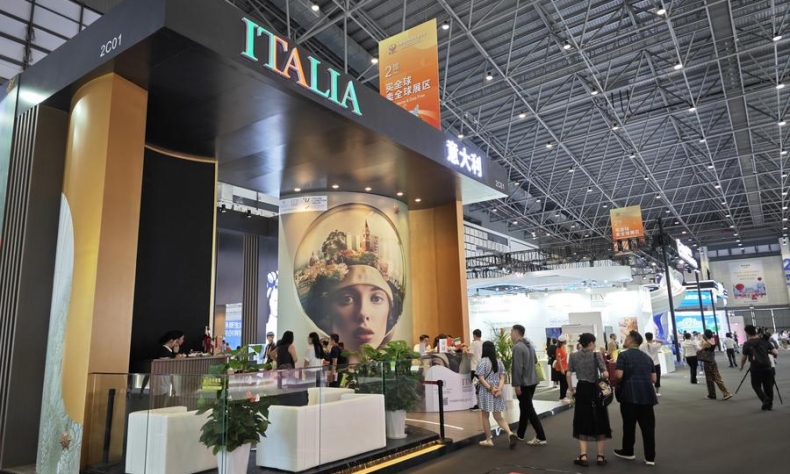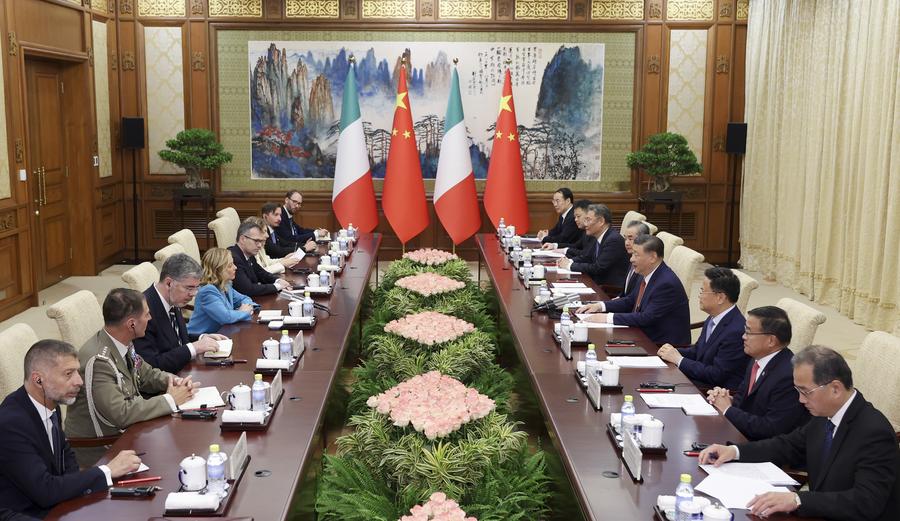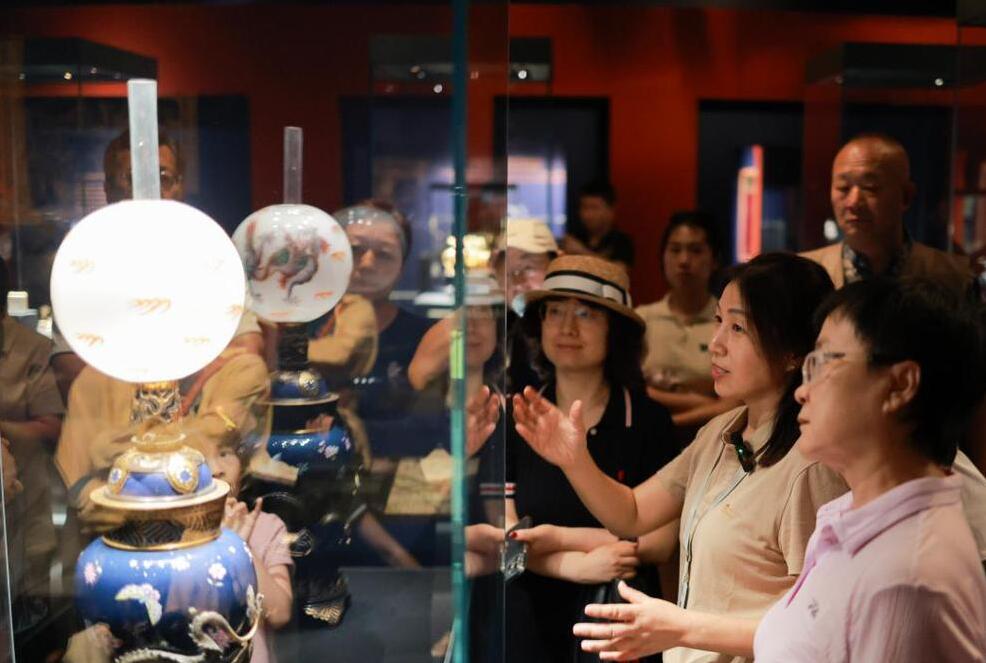A New China-Italy Partnership Beyond the Belt and Road Initiative

Meloni’s five-day visit has brought a demonstration of Italy’s good will to begin a new phase of bilateral relations with China.
With an official visit to China from July 27 to 31, Italian Prime Minister Giorgia Meloni becomes the first Western leader coming to Beijing after a comprehensive set of reforms in a document adopted at the Third Plenary Session of the 20th Central Committee of the Communist Party of China that concluded on July 18.
Needless to say, there was a rift between Beijing and Rome over the decision made by Meloni’s government to withdraw from the Belt and Road Memorandum signed in 2019 with then prime minister Conte. Italy was the first and only G7 country to join and leave (four years later) the initiative. Nevertheless, Meloni’s China trip helps to mend the bilateral relations by signing a 2024-2027 action plan on strengthening the Italy-China comprehensive strategic partnership in celebration of the 20th anniversary of their comprehensive strategic partnership this year.
There are three fundamental reasons for Italy and China to renew their dialogue and cooperation amid current international circumstances.
Political and geopolitical matters
Diplomacy face-to-face matters for both sides. Italy has found that it needs to fill the gap of meeting with Chinese leaders after five years without any high-level official visit to Beijing, while other European leaders visited China once or even twice over the last years. Rome needs to continue on the path of traditional, good and long-term relations with Beijing. The relationship needed a re-start with new perspectives. China is aware that Italy’s position as the G7 rotating presidency can be favorable for a better dialogue on unsolved issues with the European Union and across the Atlantic Ocean, in the omnipresent wide range of open issues with the United States.
Italian Prime Minister’s visit to China travels on the double track of bilateral relations and the international context. Global order is changing and today no countries in the world can avoid a relationship with China. In the context of an increasingly evident change in the global order, Meloni underlined during her meeting with President Xi Jinping that in face of growing uncertainties in international relations, “China is inevitably a very important interlocutor for addressing all these dynamics”.
Geopolitical assets have changed and China is central, especially for the two regional conflicts ongoing in Middle East and Ukraine. Italy is just the last of many countries recognizing the new middle ground and interlocutor role of Beijing.

Economic and trade ties
Trade was one of the hottest points on the agenda of the meeting in Beijing. China seeks to return to GDP growth steadily above 5 percent, but the deterioration of relations with the West does not help it.
Since July, Chinese electric vehicles have been subject to increasing duties from 17.4 up to almost 38 percent by the European Union which made allegations of China’s “overcapacity” and “unfair trade practices” in the European automotive market. The Italian government is interested in attracting another major car manufacturers to the country.
Meloni assured that “Italy can also play an important role in relations with the European Union and it’s here too the attempts to create trade relations that are as balanced as possible”.
But Italy has a strong importance for itself as a trade partner: after the United States, China is Italy’s second largest non-European trading partner. In 2023, trade between the two countries was worth 66.8 billion Euros and the government’s goal is to make it grow further. On the other side, Italian foreign direct investments in China total 15 billion Euros and its companies operate in fields of excellence like heavy industries, mechanical engineering, textiles, pharmaceuticals and energy.
Italian Prime Minister added: “if we don’t want to risk that peace and stability are irremediably compromised, we need, also in economic and commercial relations, a shared strategy, based on decisions that do not harm each other and follow some basic principles”.
The Three-Year Action Plan (2024-2027) is in addition to six other agreements and including initiatives to strengthen relations in sectors such as trade, investment, protection of intellectual property and geographical indications, agriculture and food safety, research and training, environment, culture and tourism.
Meloni said the industrial cooperation memorandum signed by Italy and China “includes strategic industrial sectors such as electric mobility and renewables”. The Italian side marked that this has to come with some specific clarifications, such as ensuring a mutual benefit in trade relations that companies operate under free trade, therefore with particular attention to competition.

Common cultural heritage
China and Italy have a long history of exchange and the two countries maintain cooperation on culture, tourism and history research.
There is nothing more symbolic than the Italian explorer Marco Polo to embody the perfect essence of the relationship between Italy and China. Marco Polo is a household name to both Chinese and Italian peoples. But not many people may know that Marco Polo together with Matteo Ricci (an Italian Jesuits priest who founded Jesuits China missions) are the only two non-Chinese personalities included in the representation of the whole Chinese history in the Millennium Monument in Beijing.
At the same museum, on the 700th anniversary of Marco Polo’s death this year, China dedicates a unique exhibition to the Venetian explorer. During her stay in Beijing, Meloni attended the inauguration of the exhibition featuring the Venetian merchant’s journeys between the East and the West.
This special event is part of Meloni’s trip since cultural and student exchanges are another point of the renovated agreement between the two countries. At the inauguration of the exhibition and in front of Chinese Minister of Culture and Tourism Sun Yeli, Meloni pointed that Italy and China “must continue to keep that road open, to allow the economic and cultural relations that are the basis of our cooperation to pass through. Defending what we are is the most effective tool for understanding the other”.
Another good news for Italians who want to Travel in China is the unilateral visa-free policy by China since last December. Now Italy together with the other 14 countries enjoy a free-visa policy of traveling to China, which has an obvious effect on facilitating people-to-people exchanges. In the future, Italy and other EU countries are expected to benefit from the facilitations offered by China for traveling in China.
Amid the complex international environment, especially the uncertainties in EU-China relations, regional conflicts, and the U.S. presidential election, Meloni’s five-day visit has brought a demonstration of Italy’s good will to begin a new phase of bilateral relations with China.
The author is China correspondent for Swiss Radiotelevision Italian Language.
The article reflects the author’s opinions, and not necessarily the views of China Focus.
 Facebook
Facebook
 Twitter
Twitter
 Linkedin
Linkedin
 Google +
Google +










